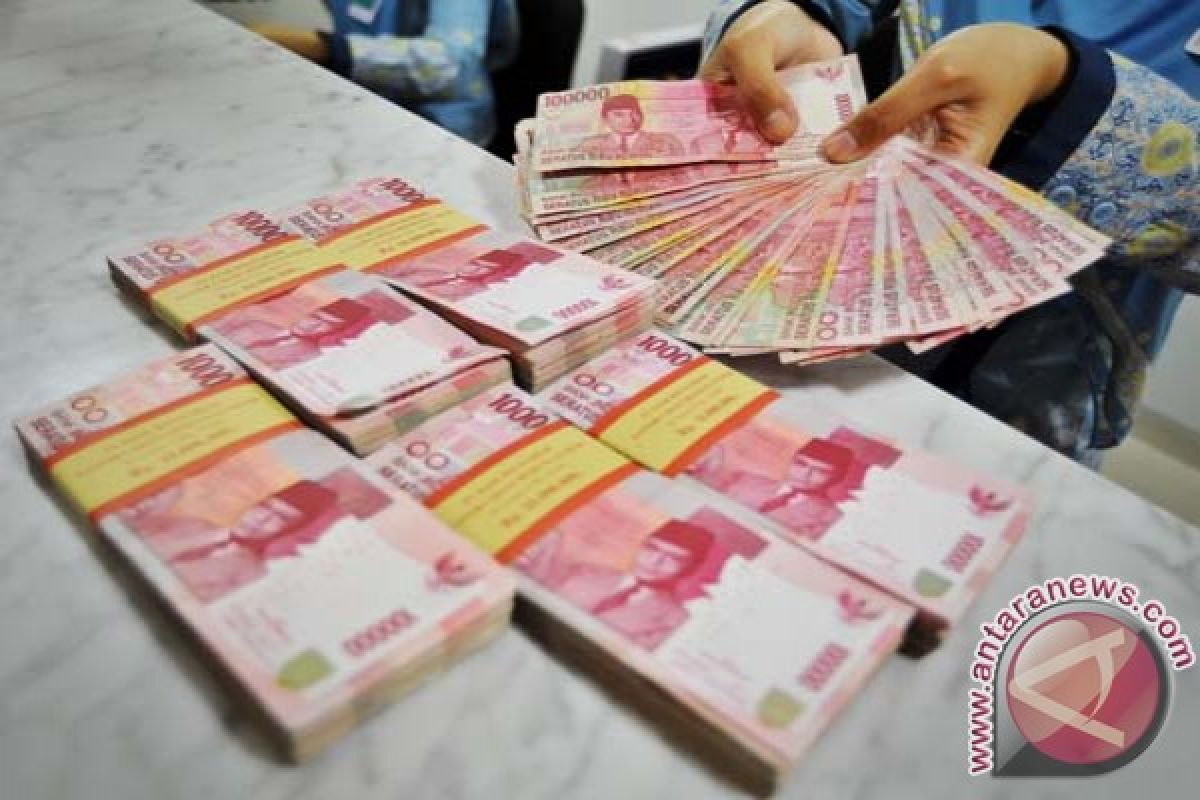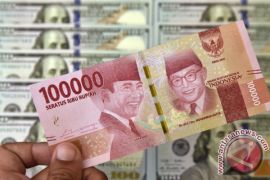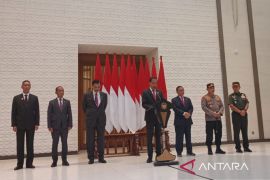Certainly the selection should be tight."Jakarta (ANTARA News) - Business leaders began to express frustration of the shrinking value of rupiah with sign that the worst is yet to come if the Fed decides to go ahead with its plan to raise its fund rate this year.
The national currency is feared to dive deeper if the US Central Bank raised its benchmark interest rate previously scheduled in the middle of this year.
With the US economy showing improvement lately the Fed might raise its interest rate earlier that could trigger capital flights mainly from developing economies.
Worried, the Indonesian Chamber of Commerce and Industry (KADIN) urged the government to do whatever it could to prop up the national currency which already lost much of its value against the US dollar.
"We hope the government is more serious in protecting rupiah to keep it within the target level of 12,000-12,500 per dollar as set in the 2015 state budget," Kadins deputy chairman for marine and fisheries field Yugi Prayanto said.
At that level both exporters and importers could enjoy adequate profit, Yugi said.
"We strongly remind the government, there should be no statement that we are still safe below 15,000 (rupiah exchange rate per dollar), as it would encourage speculators," he said.
He said business players in principle want rupiah stable, but the level of stability should be clear.
He cited, fishermen have to pay higher for the spare parts they need for their boats as the prices of imported goods including spare parts have surged with the rupiah fall.
The price of imported fishes like salmon and "king crab Alaska" as well as the price of fish feed have also increased, he said.
The Association of Indonesian Indigenous Businessmen (HIPPI)asks the government to pay attention to the impact of the rupiah weakening on local businessmen.
A HIPPI leader Hardini Puspasari said the government needs to strictly impose the Indonesian National Standard for all Indonesian products.
In addition, a wider room should be provided for the products of small and medium industries (SMEs) for promotion in Indonesia.
The government should allow selected SMEs to launch promotion in places like hotels, shopping malls and other public places all over the country with a budget from the government, Hardini said.
"Certainly the selection should be tight. At least the government should support SMEs that they could continue to grow amid the shrinking rupiah," she said.
She also asked the government to encourage hotels, and supermarkets to give priority for local products such as souvenirs, textiles and handicraft.
Local products, therefore, would be indirectly introduced to tourists, or the hotel guests, she added.
Revision of Law on Foreign Exchange
Meanwhile, the Indonesian Association of Young Business People (HIPMI) wanted revision of the Law No. 24 of 1999 on foreign exchange flows to better guarantee the rupiah stability.
"Our currency is vulnerable to the impact of free flow foreign exchange system," Hipmi chairman Bahlil Lahadalia said earlier.
Bahlil said rupiah value has fluctuated sharply as there has been no regulation effective to protect the currency.
He said the Parliament of earlier period already prepared a draft regulation on the revision of the law, but the process was halted before it was brought to full session of the Parliament.
He called on the present Parliament to carry on with the plan to revise the law.
The business world needs stability in the currency to encourage and boost investment, he said.
He said the law was a product of the era of liberalization, when we needed to strengthen our stock market and improve the confidence of foreign investors.
"Now the context is different. We need stability in exchange rate," he said.
Hipmi, predicted capital flights would increase and the ones to gain are neighboring countries like Singapore.
In 2016, it is predicted that the funds of rich Indonesians with financial assets of more than US$1 million parked in banks abroad would reach US$250 billion.
The funds are either in deposits, shares, and fixed income or in real estate property assets.
"Imagine if the funds are put in our financial system. The lending rate by Indonesian banks would be much more competitive and the liquidity of our banks would improve," he said.
Meanwhile, the Association of Indonesian Construction Companies Gapensi) sought to campaign for the use of rupiah in any transactions in the country.
"It is an irony that we have no confidence in our currency. Our currency should be sovereign at least in our country," Gapensi secretary general Andi Rukman Karumpa said.
Andi said the campaign is expected to contribute to increasing the public confidence in rupiah.
He said the rupiah sovereignty has legal basis in the Law No. 7 of 2011 ruling the use of rupiah in all transactions.
"Based on the chapter 21 point 1 of the Law No. 07/2011, rupiah is to be used in any transactions such as payments, settlement of other obligations or other financial transactions in Indonesia," he said.
He said he was confident rupiah would regain its strength based on a number of indicators such as fiscal improvement, low inflation, surplus in trade and inflows of foreign capital.
Benefits from shrinking rupiah
Economist from IPMI International Business School, Jimmy M Rifai Gani, said the shrinking value of rupiah against the US dollar should be fully utilized to boost exports.
Falling value of rupiah would increase the competitiveness of Indonesian commodities in foreign market.
"Rupiah weakening would automatically increase the competitiveness of Indonesian commodities," Jimy said, adding,"but the Indonesian exporters need to improve quality, delivery and services."
If quality could not be improved immediately , exporters could improve delivery and offer after sales services, he said.
He said the government also needs to initiate the forming of an institution in charge of improving competitiveness ahead of the implementation of Asean free market scheme.
The 10-country ASEAN would adopt free trade system under the ASEAN Economic Community to be effective by the end of this year.
Earlier, Vice President Jusuf Kalla said the current rupiah fall must not be compared to the 1998 monetary crisis when the rupiah value shrank on soaring inflation.
"Now a dollar is worth Rp13,000, but inflation is low even declines," Kalls pointed out, saying "this indicates that the rupiah value has declined more on external factors."
He said the country recorded a deflation in the first two months of the year that foreign investors continue to show interest in doing business in the country.
He said currently, there is no factor that could weaken rupiah to the level of 15,000 per dollar. The level of Rp13,000 per dollar is a new level of stability.
(Uu.H-ASG/H-YH)
Reporter: Muhammad Razi rahman & A. Sara
Editor: Priyambodo RH
Copyright © ANTARA 2015












